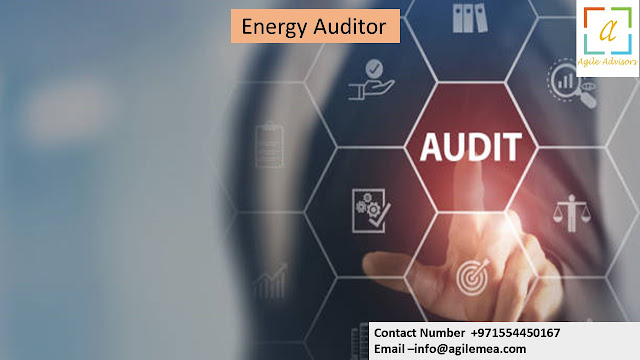Optimizing Effectiveness: The Advantages of an Energy Evaluation
Agile Advisors provide Energy Auditor, Amidst the
growing concerns about environmental sustainability and the urgent need to
address climate change, energy efficiency has emerged as a crucial aspect of
our daily lives. Energy efficiency, which involves using less energy to achieve
the same tasks, not only reduces carbon emissions but also cuts down on energy
costs. By adopting energy-efficient practices and technologies, we can
significantly impact our budgets and the environment. An energy audit, a
comprehensive assessment of a building's energy use and efficiency, plays a
pivotal role in this process. At the heart of an energy audit is a detailed
analysis of equipment performance, energy usage patterns, and building envelope
features. The primary objectives of an energy audit are to pinpoint areas for
energy savings and provide recommendations for enhancing energy efficiency.
This task is carried out by energy auditors, trained professionals with the
expertise to assess a building's energy performance and identify opportunities
for improvement.
Being an Energy Audit provide Agile
Advisors, Reputable organizations certify energy auditors, and they frequently
have an engineering degree or a comparable background. Undertaking an energy
audit has numerous benefits for both individuals and companies. Initially,
there might be significant cost reductions. By identifying energy-saving
opportunities, such as upgrading to more energy-efficient lighting systems or
enhancing insulation, energy audits can help reduce energy usage and
electricity expenditures. Secondly, energy audits can improve the quality and
comfort of interior areas. Energy audits can find and remedy issues like air
leaks, inadequate insulation, or inefficient HVAC systems, improving a
building's overall comfort and ensuring its occupants have a comfortable and
healthy living or working environment. Thirdly, energy audits contribute to
reducing the environmental impact of buildings. Energy audits find and
implement energy-saving measures that reduce carbon emissions and slow climate
change.
We are Energy Consultant in Agile
Advisors; this is particularly important as buildings account for significant
global energy consumption and greenhouse gas emissions. Energy engineers'
primary responsibilities include minimizing energy use and maximizing energy efficiency.
Their responsibilities include designing and implementing energy-saving
strategies, analyzing data, and optimizing energy systems. Energy engineers'
extensive understanding of energy systems, technologies, and laws allows them
to identify and implement excellent energy-saving solutions. Completing an
energy audit often involves several phases. First, data is collected to learn
more about the building's equipment, systems, and energy usage. This could
involve reviewing utility bills, interviewing tenants, and installing energy
monitoring devices. The data is analyzed to identify trends, patterns, and
inefficient regions after it has been collected. Energy auditors use this study
to rank energy-saving initiatives and pinpoint improvement areas.
As an Energy Audit in Agile
Advisors, A comprehensive report detailing potential energy-saving options and
expected cost reductions is subsequently produced using the suggestions and
conclusions. Energy audits can uncover a lot of chances for energy savings.
It's usually advisable to update your lighting as switching to more
energy-efficient lighting technologies, like LED bulbs, can significantly
reduce energy consumption. HVAC improvements, such as replacing outdated
systems with more energy-efficient models or improving existing ones, can also
result in significant energy savings. Insulation is another area where energy
audits may identify opportunities for improvement. Inadequate insulation can
lead to significant energy losses, particularly in older structures. Raising
insulation levels and conducting energy audits can help decrease heating and
cooling loads, lessening energy consumption.
In our opinion as Energy Auditor, Other
energy-saving strategies that can be discovered through energy audits include
adopting renewable energy technologies, optimizing equipment settings, and
implementing energy management systems. Following the identification of
energy-saving opportunities, the recommended actions must be implemented. This
means determining the most cost-effective solutions and working with
contractors to finish any necessary installations or renovations. Energy
engineers are crucial to this process since they ensure the measures are
correctly implemented, and the desired energy savings are obtained. It's
critical to assess and monitor energy usage to ensure the effectiveness of
energy-saving initiatives and identify possible areas for further development.
Building owners and operators can identify patterns, abnormalities, and
inefficient regions by installing real-time energy monitoring systems that
detect energy consumption.




Comments
Post a Comment